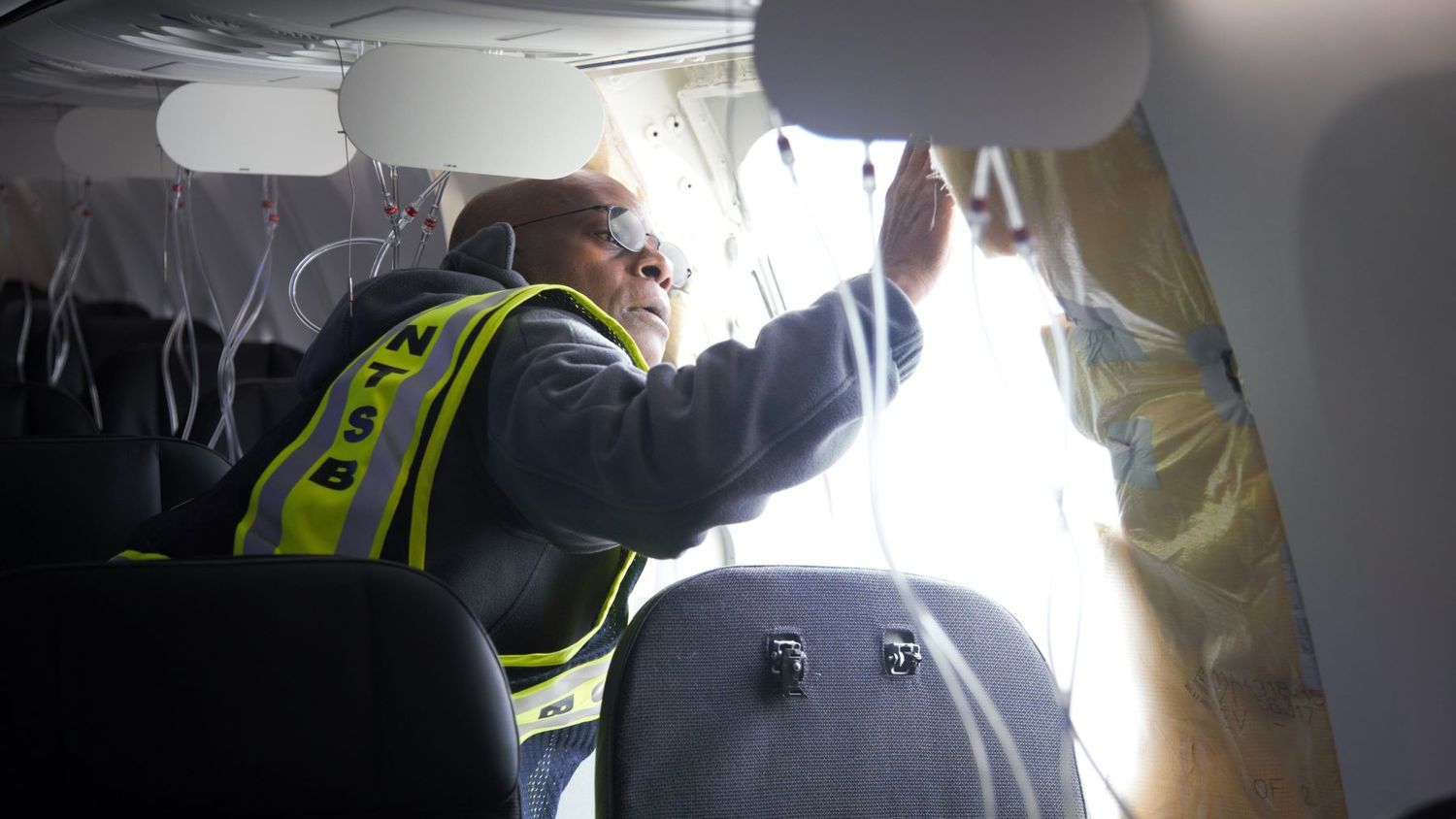Alaska’s Boeing 737 MAX Voice Recorder did not save incident data and NTSB pushes on increasing recording time to 25 hours
In an extensive briefing led by Jennifer Homendy, chair of the National Transportation Safety Board (NTSB), significant findings and recommendations were presented in the investigation of the recent incident involving the Alaska Airlines Boeing 737-9.
Homendy detailed how the NTSB’s Structure team meticulously examined the aircraft’s door plug, crucial for maintaining cabin pressure. «Our team documented the condition of the door plug and its components, and a more detailed analysis is planned in a laboratory,» stated Homendy, emphasizing the need for a thorough investigation.

The Systems group expressed concerns about a recurring automatic pressurization failure light in previous flights. «This issue points to potential systemic failures that we cannot overlook,» Homendy commented.
Alaska Airlines grounds Boeing 737-9 MAX fleet due to failure of a factory-overridden door
Interior Damage and Crew Response
The Survival Factors team recorded extensive interior damage due to the explosive decompression. «Our team observed significant damage in several rows, affecting seats and interior panels,» reported Homendy. Despite the internal chaos, the crew’s rapid and professional response was praised. «The crew’s actions were exemplary in ensuring the safety of passengers under extreme circumstances,» she added.
NTSB’s Goal: Extending Black Box Recording Times
The major concern raised was the current limitation of the Cockpit Voice Recorder (CVR) to a 2-hour recording. Homendy strongly advocated extending the recording time to 25 hours, aligning with the standards of the European Union Aviation Safety Agency (EASA). «Valuable CVR data continues to be overwritten, hindering our ability to fully understand incidents and improve safety measures,» she emphasized.
«The FAA proposed extending CVR recording times, but only for new aircraft, and it’s insufficient. Our existing fleet, which will be in service for decades, needs this upgrade,» argued the NTSB chair, urging the FAA and Congress to take decisive action. «In aviation, every second of data is crucial. We cannot afford to lose vital information,» she stressed.
The local community’s involvement in the search for the lost door plug was highlighted, showing the importance of public cooperation in aeronautical investigations. «Their efforts are invaluable and deeply appreciated,» noted Homendy.
The session concluded with a firm message: «Our commitment at the NTSB is unwavering: we will continue to push for improvements that safeguard the lives of passengers and crew alike.»
The NTSB’s recommendations, if implemented, could represent a significant step in aviation safety, ensuring that future investigations have access to more complete data, potentially preventing similar incidents.


Comentarios
Para comentar, debés estar registrado
Por favor, iniciá sesión